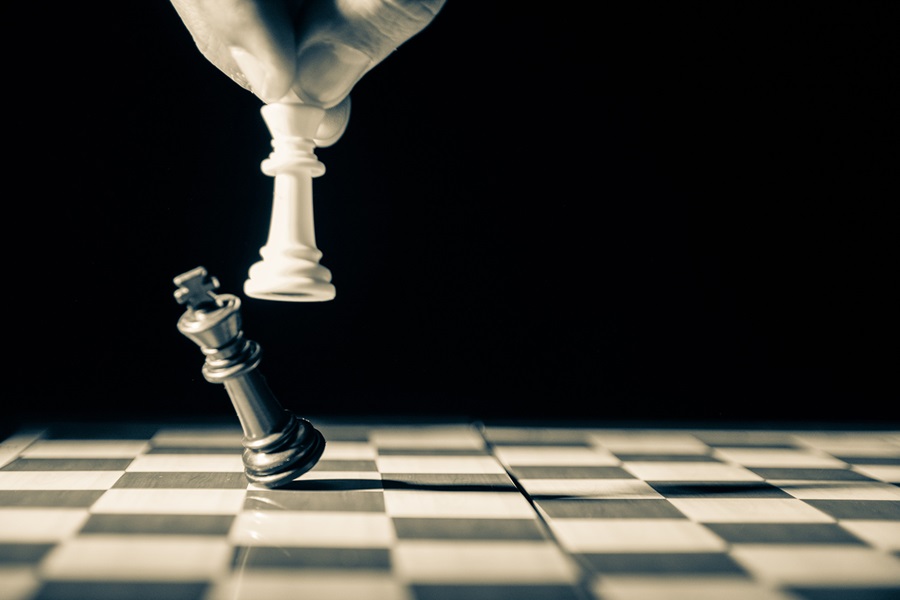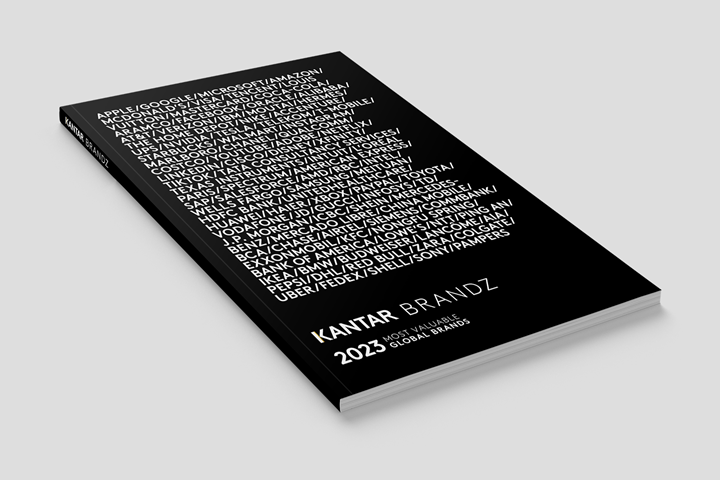In 2021 Kantar offered Saïd Business School at the University of Oxford the opportunity to work independently using the Kantar BrandZ dataset. This work revealed that brand perceptions contribute to achieving ‘abnormal business returns.’ Those brands able to achieve perceptions of ‘Difference,’ as defined by a combination of uniqueness and leadership, were best placed to outpace their peers. Indeed, Difference was the number one brand contributor to superior financial returns. What’s more, the Oxford/Kantar BrandZ model predicted market outcomes better than financial models that didn’t feature brand performance data.
The Kantar BrandZ Difference variable is the No. 1 contributor to the model.
Out of sample R-squared
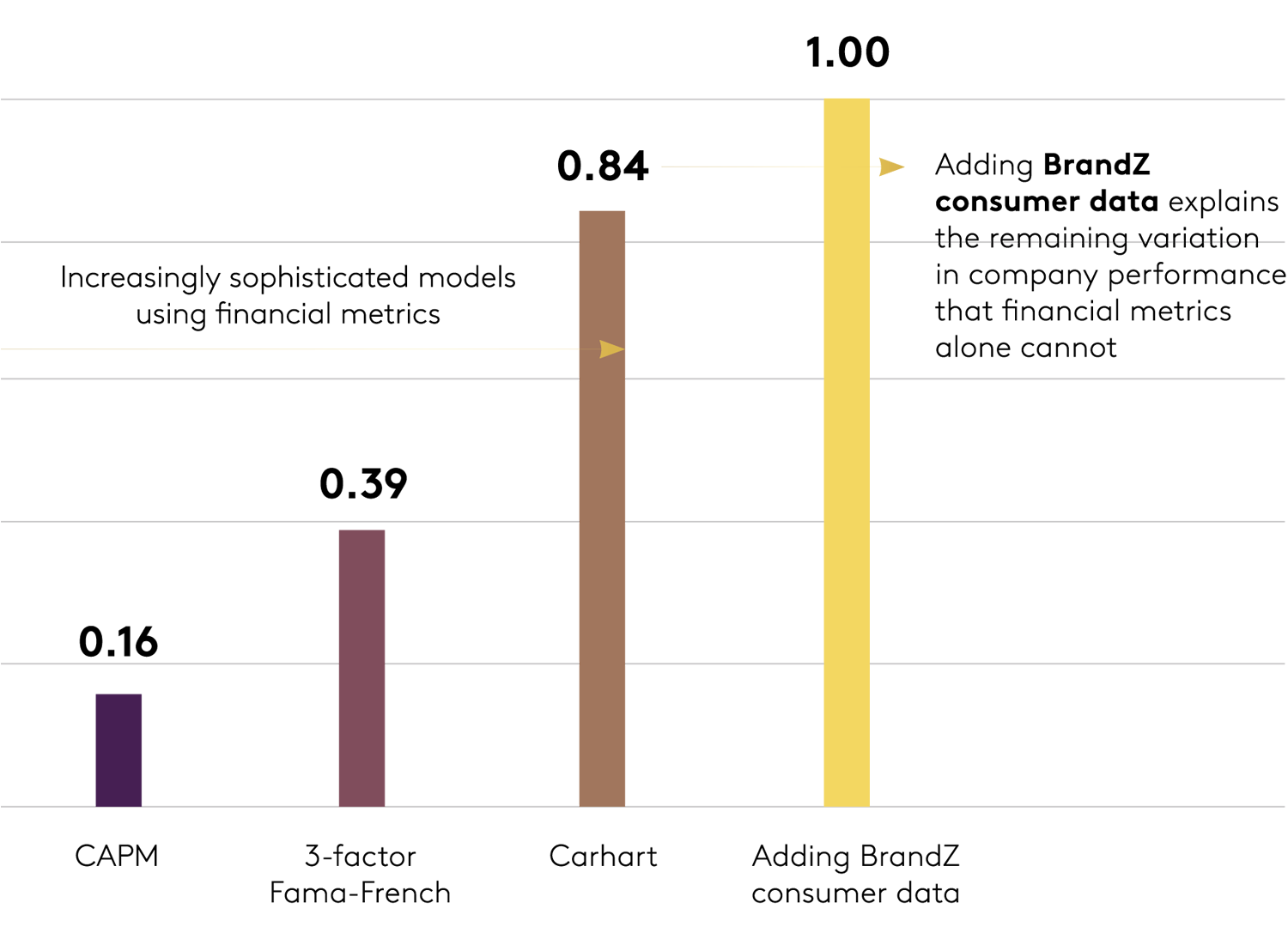
Base: financial data from 328 US-based companies owning 872 brands, 2007-2009; plus over 15,000 brand observations.
A more complete definition of Difference is: a property of a brand as it exists in the mind of the consumer; the degree to which a brand’s associations don’t overlap with those held for replaceable brands.
Distinctively Different
Much has been written about the role of ‘Distinctiveness’ as opposed to ‘Difference’. However, why shouldn’t the two be intertwined to the point of a symbiotic, complementary relationship? Intuitively they certainly feel linked – if a brand stands out to me and I recognise it in some way, surely that recognition in itself will bring with it useful associations to aid my decision? ‘I’m here, look at me and remember me!’ or perhaps, ‘Come and buy me again, you liked me last time, remember!’
Distinctiveness can be defined as: the degree to which a brand comes associated with stimuli, which trigger mental associations in people’s minds making it easier for them to recognise and connect with the brand. Essentially then, Distinctiveness can be thought of as an important contributor to a brand’s perceived Difference: truly Distinctive assets will elicit immediate recognition AND bring to mind associations that set the brand apart from others in a way that will further influence decision making. To give one example of distinctiveness: The shape of the Pringles’ tin, the moustachioed logo of ‘Julius Pringle,’ and the contoured chips themselves, all combine into immediate recognition of the Pringles brand. They transform Pringles into a brand that’s laden with memories and associations - perhaps of sharing, fun, and a certain taste experience. These associations are derived from a person’s personal interactions with the brand to date, and also project forward to shape expected future experiences. Pringles’ distinctive brand assets combine to influence people’s choice in the snack aisle versus Cheetos, Doritos, Walker’s, Wotsits, and the rest; they are making people that much more likely to choose Pringles. The point is that their cumulative effect is greater than the sum of the individual component parts – distinctive assets combine to both boost recognition, and enhance or create difference.
An analogous way to consider this effect is to think about some of the world’s most successful film franchises – each one of the following examples is both immediately recognisable and clearly differentiated, partly as a result of the power of unique and distinctive ‘assets’. They each hold a special sense of uniqueness and magic (one of them quite literally) for the viewer. Not all of these are physical props, but that doesn’t dilute their power.
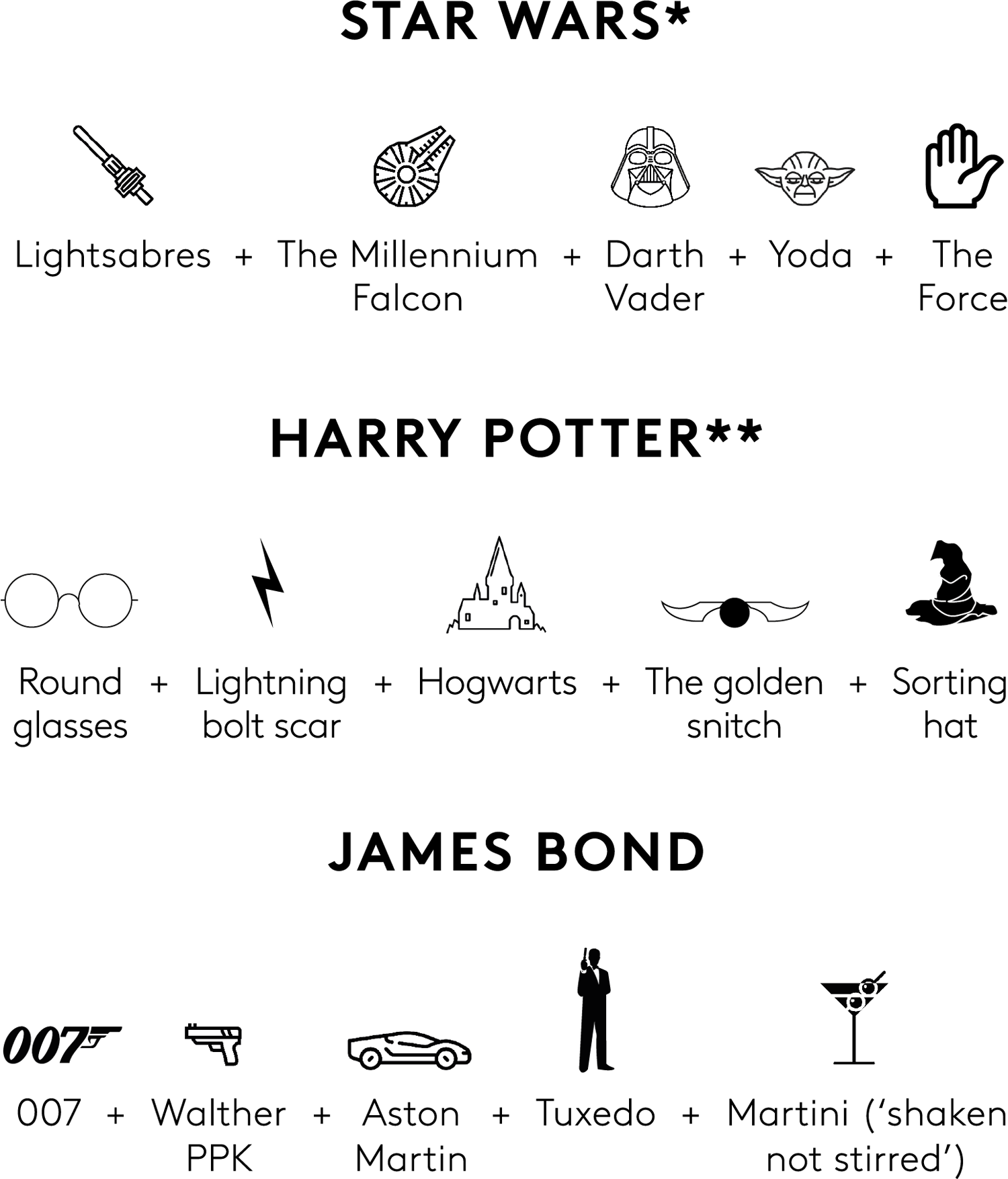
*Not pictured: Stormtroopers, R2-D2, C3PO, Chewbacca, Jabba the Hutt, Boba-Fett, Ewoks, THe Death Star, X-wing fighters, Tie-fighters, the original score and sound effects – The list goes on and on...
**Not pictured: Wands, the four Hogwarts houses, chocolate frogs, red and yellow stripes, the white owl
Coming back to the world of brands, Kantar BrandZ data illustrates the interplay between Distinctiveness and Difference with examples of brands that are perceived to be particularly Different, Distinctive, or both.
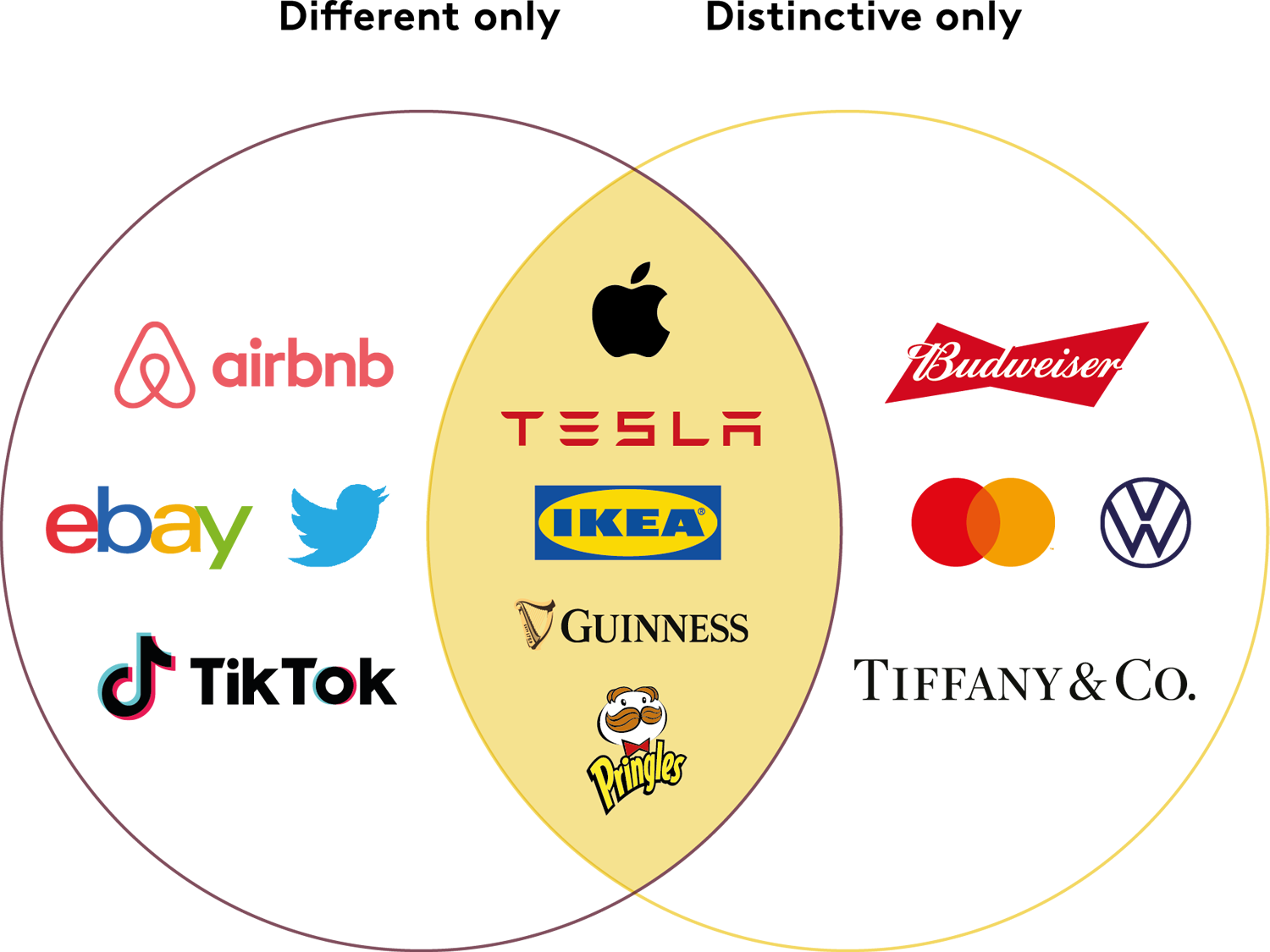
(Based on BrandZ survey data and BrandZ Brand Imprint study using implicit association techniques)
To date, Airbnb has achieved Difference primarily through the initial uniqueness of its offer: from the start, the platform created an entirely new way of seeing the world – and on the flipside, of monetising property. As COVID-19 restrictions continue to lift and we begin to travel frequently once more, Airbnb talked about the need to build brand as a differentiator and key means of driving growth – prioritising brand building over performance marketing with the recent ‘made possible by hosts’ campaign. CEO Brian Chesky said recently: “We’re seeing great success in the brand marketing that we did last year and we’re going to be expanding it to more countries. There will be incremental brand marketing spend this year.”
On the other side of the coin sit a number of brands currently lacking perceptual brand difference; some in particularly commoditised categories, and others very much defined by the dominance of their assets – Tiffany and Burberry are good examples of brands with hard won, very strong associations around colour and pattern, though when it comes to luxury goods, clearly consumers need more to justify their investment. To that end LVMH’s purchase of Tiffany in 2021 immediately resulted in a range of new creative ideas, from playing with colour (the brand temporarily embraced a bright yellow) to new and provocative campaigns like ‘#NotYourMothersTiffany’ aimed at younger customers, and ‘Stand for love’, which launched in Pride month accompanied by a claim that Tiffany was the first luxury jeweller to feature a same sex couple in its advertising.
Mastercard has such a strong visual identity, it was able to completely remove its name from the brand’s logo in 2019. And yet it continues to struggle to truly differentiate from Visa, Amex, and others – as do each of those brands too of course - in a particularly functional, and quite literally transactional, category. This functional similarity is a challenge for many brands, particularly those operating in categories where consumers have a range of choices available. Adding a differentiating emotional component to a brand’s positioning can certainly help. And finally, there are the select few brands who confidently sit astride both Distinctiveness and Difference; instantly recognisable, quick to mind, and clearly standing apart from the rest. These Distinctively Different brands include Guinness, IKEA, Pringles, Tesla, and Apple. All owners of very strong assets, and all capable of conjuring well-differentiated and influential associations, when the need or occasion dictates.
Quality marketing can help unique associations to be noticed and remembered, potentially imbuing distinctive assets with the power to recall them. Cumulative associations build to enhance difference and aid choice. Distinctiveness is a key contributor to difference – distinctive assets are hard to build and maintain but are a nonetheless very worthwhile investment.
Scarcity equals premium
Finally, an often overlooked facet of a brand’s perceived Difference is the ability to signal quality, and therefore support an advantageous price differential. Quite simply, Difference is worth paying for.
Difference is worth paying more for
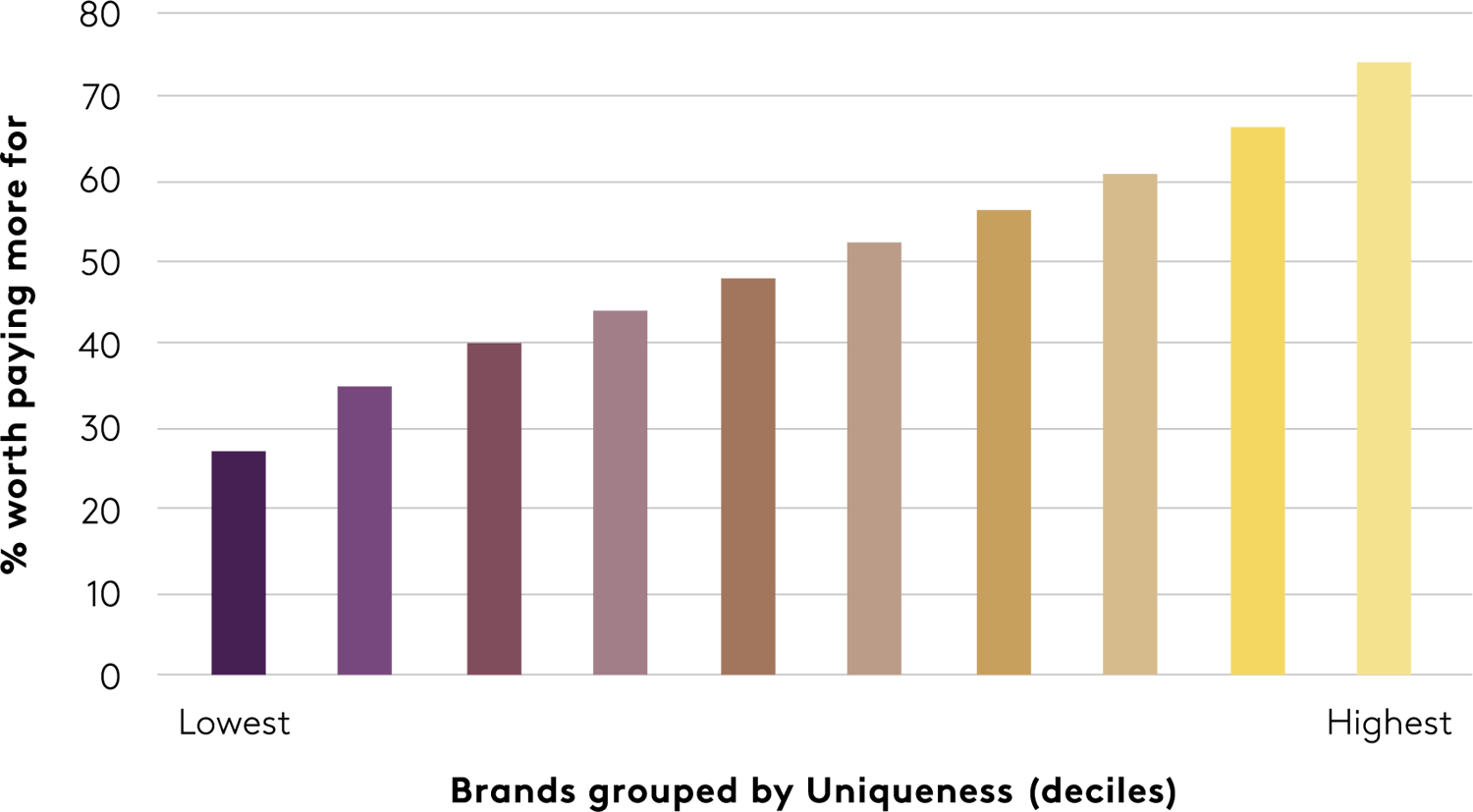
In summary then, Difference is precious because it is relatively rare in any category – it is very hard to achieve. Perceptions of Differentiation accelerate growth, but to be perceived as Different, a brand must not only possess something special to distinguish itself from the crowd, but be able to communicate it clearly and compellingly.
What does your brand have in its arsenal to set it apart? How does your current strategy continually enhance and highlight your brand’s Difference to your intended audience? How will that audience recognise your brand, both in the literal sense, but also in the sense of the small but unique contribution it can make to their lives? How is your brand actively pursuing Difference to unleash the many benefits it brings?
Find more analysis and thought leadership on what makes a strong brand in the Kantar BrandZ Most Valuable Global Brands report.
